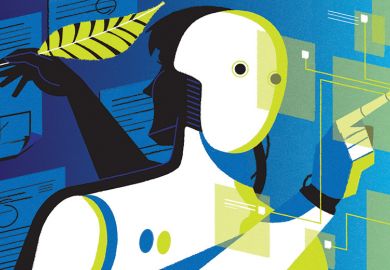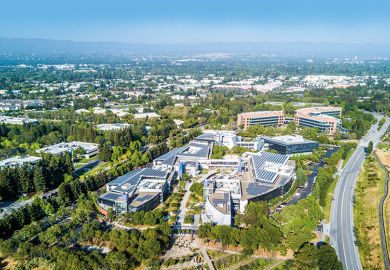Major public investment in higher and other levels of education akin to the US’ investment after the Second World War is essential to help “manage” the rise of AI, which could otherwise bring a “new era of fascism”, according to economist and Nobel laureate Joseph Stiglitz.
The Columbia University professor delivered a lecture as part of the Royal Society’s ‘You and AI’ series, in which he said a key issue was AI’s potential to bring a further rise in inequality by making some jobs obsolete.
He told the audience in London: “If you look at those groups who supported our – I don’t know what to call it – the person in the White House now, you realise the dangers of not managing it [the impact of technological change on work] well; the correlations between those who supported him and unemployment, low wages, deindustrialisation – the [links with] the world of work are very clear and fairly unambiguous.
“If we don’t manage this [the rise of AI] well…it could well be a new era of fascism, with a lot of remnants and memories of what happened in the thirties.”
The event coincided with the launch of a British Academy and Royal Society evidence review of existing academic research on AI’s potential impact on the world of work. It finds a consensus emerging that 30-40 per cent of jobs in the UK are “automatable”.
Answering questions from the audience, Professor Stiglitz said: “At the end of World War Two, the United States had a much higher debt to GDP ratio [than today], of about 137 per cent. Our per capita income was a fraction of what it is today, and yet we said to everybody who had fought in the war – every young man and a lot of women – you can get as much education at the most expensive school that you can get into for as long as you want.”
He added: “If we could afford it then, we can afford it now. That turned out to be very important in restructuring our economy from agriculture to a manufacturing economy. That was really the critical skill transition.”
Times Higher Education asked Professor Stiglitz after his lecture about the comparison between the rise of AI and the US’ post-1945 spending on education for GIs. He said the current challenge was “in some ways” even more acute “because it is clear that the jobs that can be routinised, many of them will be replaced. So unless you have some skills that enable you to handle the non-routine things, you are becoming obsolete.”
He added: “There are some people who think education is the answer – and I think it’s part of the answer [along with] the other things like anti-trust [laws]. Spending more on…health, high school and elementary school are important [too].”
Alan Wilson, a member of the steering committee that produced the British Academy and Royal Society report, said there is “much we can do now to ensure the advantages of AI are shared equally among the population, and that technology is used to boost productivity and growth. Adopting a broad post-16 curriculum which incorporates maths, science, humanities and social sciences would go a long way in building resilience to future change.”
Register to continue
Why register?
- Registration is free and only takes a moment
- Once registered, you can read 3 articles a month
- Sign up for our newsletter
Subscribe
Or subscribe for unlimited access to:
- Unlimited access to news, views, insights & reviews
- Digital editions
- Digital access to THE’s university and college rankings analysis
Already registered or a current subscriber?








